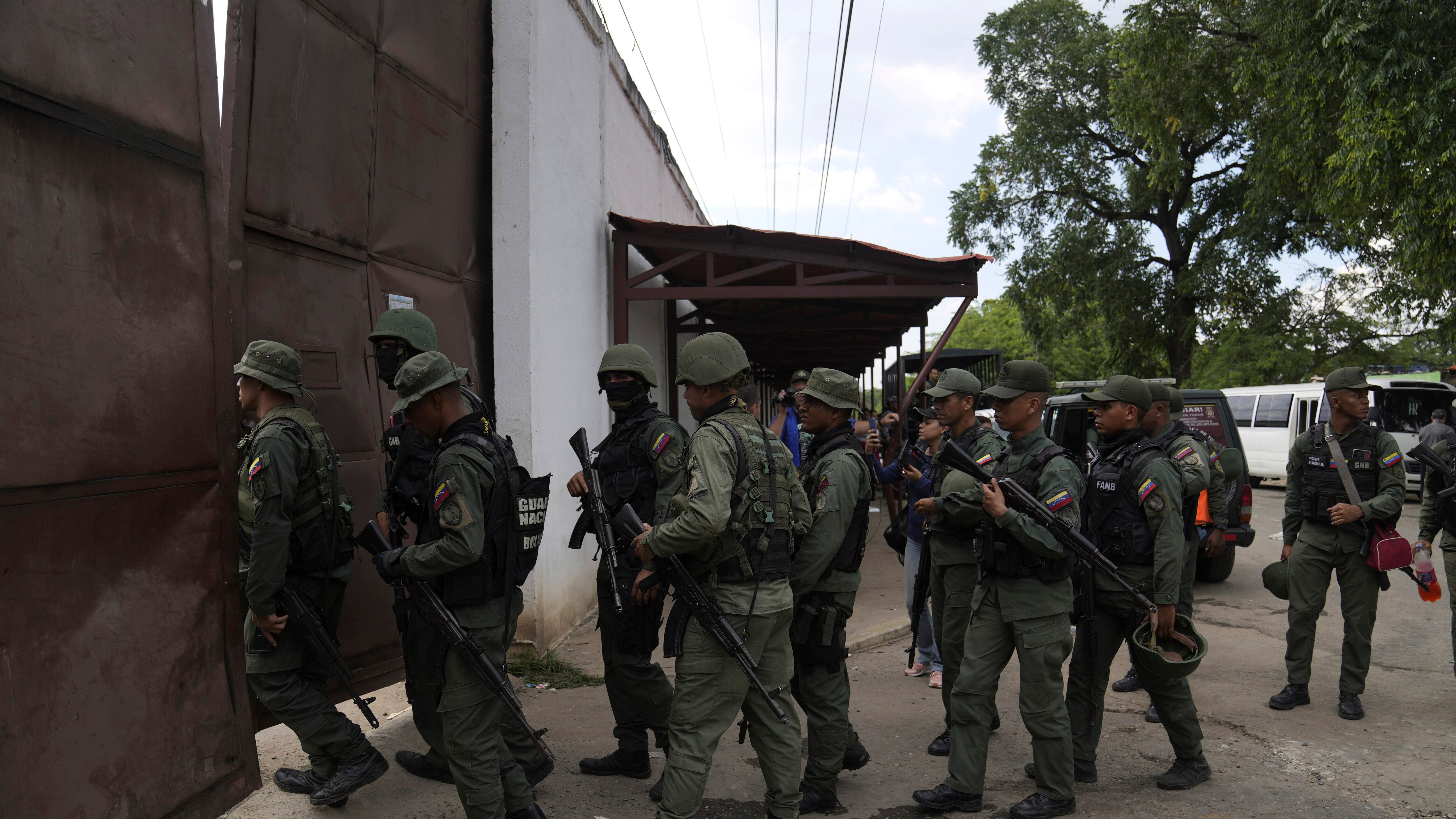MIAMI (AP) — Former federal agent Was Tabor says his phone has been lighting up with calls from police departments across the United States seeking advice on how to combat the growing threat of the Venezuelan criminal group Tren de Aragua.
Tabor was in charge of the US Drug Enforcement Administration (DEA) agency in the Venezuelan capital, Caracas, in 2012, when the gang was still new and Tabor had barely heard of it.
PUBLICIDAD
Venezuela had long been a major transit zone for cocaine smuggled by Colombian guerrillas, with a leftist government that had close ties to some of the United States' main adversaries, from Iran to Russia. Therefore, the gang, although a concern for the US embassy staff in their daily movements through the dangerous capital of Venezuela, was not considered a significant security risk for the United States.
Now, more than a decade later, this criminal organization has become a threat even on U.S. soil and has broken into the presidential campaign amid a wave of kidnappings, extortions, and other crimes across the Western Hemisphere linked to a massive exodus of Venezuelan migrants.
"What sets this group apart is the level of violence," said Tabor, now retired from the DEA. "They are aggressive, they are hungry, and they do not know limits because up until now they have been allowed to spread their wings without any confrontation from law enforcement."
That is beginning to change.
In July, President Joe Biden's government sanctioned the gang, placing it alongside El Salvador's MS-13 and Italy's Camorra on a list of transnational criminal organizations and offering $12 million in rewards for the arrest of three leaders. Then, this month, Texas Governor Greg Abbott declared the Tren de Aragua as a Level 1 threat, ordering the state police to focus on the gang and paving the way for harsher sanctions against its members. It is possible that other states will soon follow suit.
Attention on the gang arose after images from a security camera surfaced on social media showing a group of heavily armed men brazenly entering an apartment in the suburb of Aurora, Colorado, in Denver.
This led former President Donald Trump to promise to "free Aurora" from Venezuelans who, he said without evidence, were "taking over the entire city."
The police have described the reports as exaggerated, but acknowledged that they are investigating 10 gang members for their involvement in various crimes, including a homicide in July.
Among them is a Venezuelan who was arrested in another Denver suburb and accused of helping another person steal a motorcycle and pointing an AR-15 rifle at a tow truck driver who had asked him to move his car. Another one was suspected of stealing Gucci designer sunglasses in Boulder and has a criminal record in several states, including car theft and vehicular assault.
In other places, from the heart of the country to major cities like New York and Chicago, the gang has been blamed for sex trafficking, drug smuggling, police shootings, as well as the exploitation of migrants.
The size of the gang is unknown, as well as the extent to which their actions are coordinated across state borders and with leaders believed to be outside of the United States.
The gang originated more than a decade ago in an infamously lawless prison with hardened criminals in the central state of Aragua. However, it has expanded in recent years as more than 8 million desperate Venezuelans have fled the economic turmoil under President Nicolás Maduro's government and migrated to other parts of Latin America or the United States.
One of the founders is Héctor Guerrero, who was imprisoned years ago for killing a police officer, according to InSight Crime, a group of experts that monitors organized crime in the Americas. Guerrero, nicknamed "El Niño," escaped and was later recaptured in 2013. He escaped from prison more recently, when the Venezuelan government was trying to regain control over its prison population, and it is believed he is now residing in Colombia.
Authorities in countries like Chile, Peru, and Colombia—all with large populations of Venezuelan migrants—accuse the group of being behind a wave of violence in a region that has long had some of the highest homicide rates in the world. Some of their most sensational crimes, such as decapitation and burying victims alive, have spread panic in poor neighborhoods where the gang extorts businesses and charges residents for "protection."
There is now concern that the ruthless tactics of the gang may reach the shores of the United States as its members infiltrate the nearly one million Venezuelan migrants who have arrived in the country in recent years.
Last week, Republicans led by Senator Marco Rubio from Florida, vice-chair of the Senate Intelligence Committee, wrote a letter to Attorney General Merrick Garland requesting a coordinated strategy from the Biden administration to combat the gang.
"The weak enforcement of immigration laws by the administration allows gangs, such as the Tren de Aragua, to control routes and exploit migrants," the letter says.
Meanwhile, in Venezuela, officials have noticed the attention on the Aragua Train in the United States and have expressed their confusion.
A year ago, the Maduro government claimed to have dismantled the gang after regaining control of the prison where the group originated. In July, Foreign Minister Yván Gil stated that the Tren de Aragua is a "fiction created by the international media."
More recently, Diosdado Cabello, Minister of Interior and Justice, linked the criminal group with an alleged plot backed by the United States and the opposition to kill Maduro and some of his allies after the presidential elections on July 28th.
The official stated that the detainees were seeking to destabilize the Venezuelan government.
